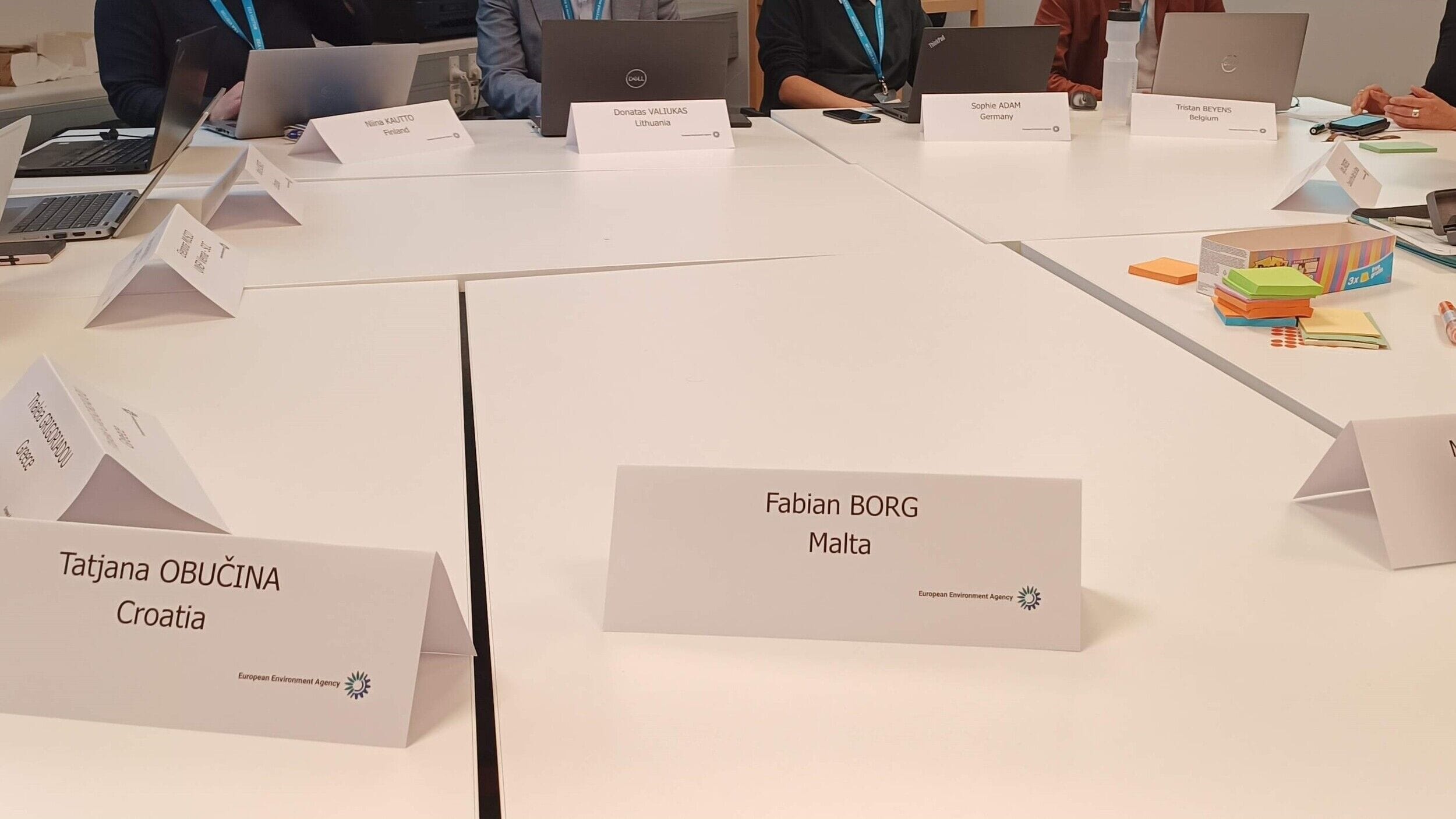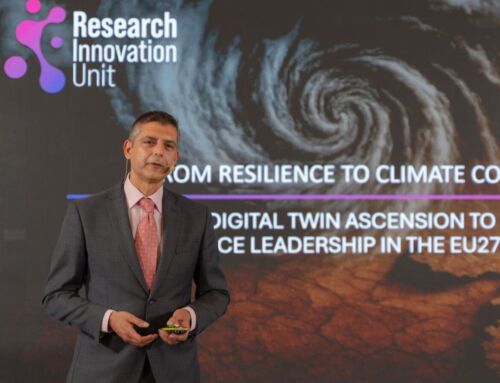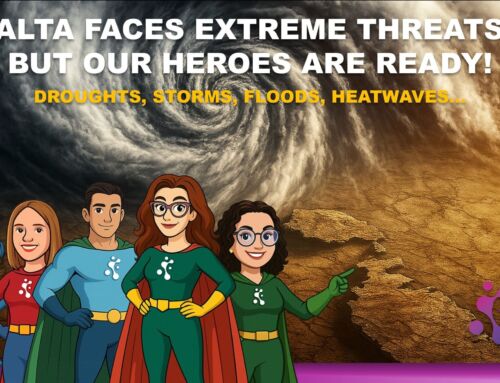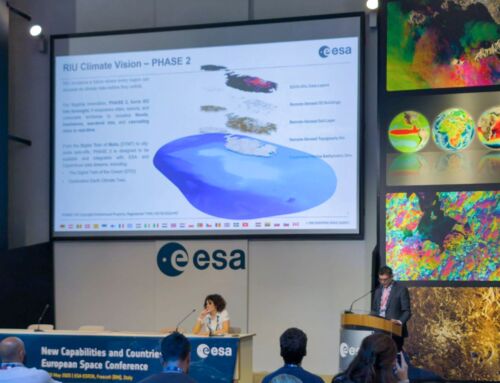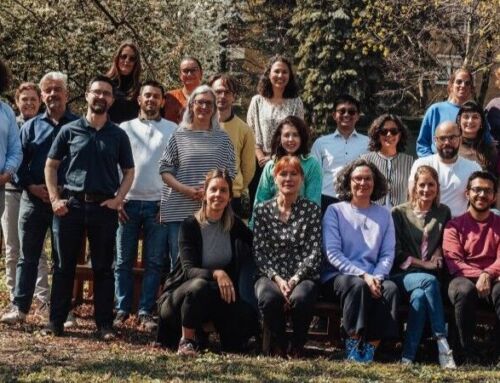On 8-9 October 2024, the European Environment Agency (EEA) held the Eionet Expert Workshop in Copenhagen, Denmark, bringing together key European representatives to chart the future of climate adaptation knowledge platforms. Representing Malta, Fabian Borg, Head of the Research Innovation Unit (RIU), contributed to RIU’s perspectives on optimising these platforms to enhance their utility for communities and policymakers.
The workshop aimed to strengthen Europe’s collaborative frameworks for climate adaptation, aligning them with recent EU climate policies and the evolving demands of practitioners and citizens. By focusing on improving the accessibility and coordination of adaptation resources, the event laid the groundwork for the upcoming 2025-2027 Climate-ADAPT Strategy.
RIU’s Push for Personalised AI in Climate Adaptation
During the discussions, Borg highlighted the significance of making climate information accessible, relevant, and user-centred. He advocated for integrating Artificial Intelligence (AI) within adaptation platforms, enabling a tailored user experience that resonates with diverse demographic groups. Drawing from social anthropology principles, he illustrated how Baby Boomers, Generation X, Millennials, and Generation Z engage with climate issues differently, shaped by their unique formative experiences and digital habits.
AI-driven platforms could adjust information presentation to suit these varied user preferences, thus creating a more impactful experience. By incorporating generational distinctions into information delivery, Borg argued that Europe’s climate adaptation efforts could engage broader audiences and encourage sustained involvement. This approach, he stressed, is essential for combating climate fatigue, being a common barrier where the enormity of climate challenges may lead to inaction. RIU’s vision encompasses using AI to help users swiftly access relevant information in formats that match their preferences.
Addressing Malta’s Distinct Climate Challenges
As a small island nation, Malta faces unique vulnerabilities, including rising sea levels, intensified heatwaves, and volatile weather patterns, threatening its environment and infrastructure. Borg underscored the necessity of localised adaptation knowledge that addresses Malta’s specific challenges, ensuring timely and relevant responses on the ground. By tailoring adaptation resources to support smaller or more isolated regions, the EEA can better serve island communities as effectively as continental ones.
Borg’s proposal for a user-centred AI approach dovetails with RIU’s climate adaptation goals, emphasising making knowledge accessible and actionable. With AI-enhanced systems, local policymakers and citizens can efficiently locate resources tailored to Malta’s needs, facilitating informed decision-making across governance levels.
Insights and Collaborative Strategies from Across Europe
The workshop was also a forum for adaptation leaders from across Europe to share insights from their national platforms. Representatives from Austria, Germany, Poland, Slovakia, and Turkey discussed their distinct approaches to disseminating, updating, and applying adaptation knowledge. Borg’s focus on AI personalisation added a unique perspective, suggesting ways to make platforms more engaging and user-friendly.
The group further examined methods to enhance task-sharing among national and transnational adaptation platforms, reducing redundant efforts. The Climate-ADAPT platform, Europe’s central adaptation knowledge hub, is critical in consolidating collective expertise. However, Fabian emphasised the need to customise this knowledge to address specific regional and national priorities.
Borg also advocated for increased support for local adaptation initiatives, particularly in smaller municipalities and high-risk areas. By simplifying complex climate data into easily accessible formats, platforms can empower policymakers, local councils, and individual communities. According to Borg, this approach can make adaptation knowledge platforms more inclusive, practical, and impactful.
Towards an Inclusive, Future-Ready Climate Strategy
As the workshop concluded, participants looked forward to the next steps in refining Europe’s adaptation platforms. Borg’s message was clear: accessibility and adaptability must remain central as Europe advances toward the 2025-2027 Climate-ADAPT Strategy. Borg underscored that digital innovation, mainly through AI, should go hand-in-hand with a robust and user-focused approach responsive to evolving adaptation needs.
Malta’s Research Innovation Unit (RIU) is committed to remaining at the forefront of these advancements, collaborating closely with European partners to develop an inclusive adaptation knowledge framework. By prioritising inclusivity and leveraging digital innovation, Malta aspires to be a leader in climate adaptation, fostering resilience within its borders and across Europe’s diverse landscapes.
For additional details on the workshop outcomes and Malta’s ongoing efforts in climate adaptation, visit the European Environment Agency’s official website or contact the Research Innovation Unit (RIU) directly.

